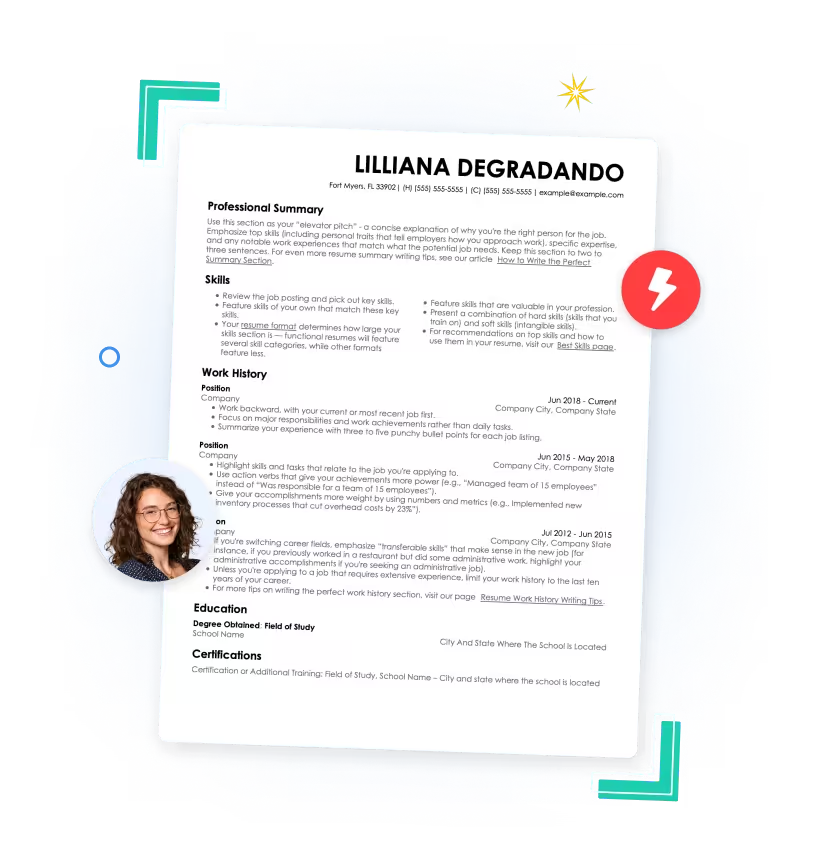If you’ve ever set to work on updating your resume before, you know that it can be a lot harder than it seems. A resume, after all, is your potential employer’s first impression of you, so it’s important to make it count. Most jobseekers have a difficult
time knowing what to include in their document to make it as strong as possible. We’ve created these nursing resume samples to help you in your efforts. Not only do they provide a great reference for the skills and experiences you’ll want to include,
they can also give ideas for the kind of format you may want. Take a look at our resume maker if you need additional help.
Nursing Resume
1. Certified Nursing Assistant Resume Sample
1. Certified Nursing Assistant Resume Sample
WORK EXPERIENCE
Certified Nursing Assistant
Legacy House
Ogden, UT
August 2015 – present
- Answer patient call signals in a timely manner to determine needs and provide assistance when necessary
- Provide physical support for patients’ daily living activities, such as eating, getting out of bed, bathing, using the toilet, walking, and dressing
- Completed 13 patient bedtime procedures per night
- Measure, monitor, and record food and liquid intake for residents, as well as urinary and fecal output to determine patient health, and report changes to medical or nursing staff as needed
2. Critical Care Nurse Resume Sample
2. Critical Care Nurse Resume Sample
WORK EXPERIENCE
Critical Care Nurse
UPMC Mercy Hospital
Pittsburgh, PA
April 2012 – Present
- Measure and evaluate patient vital signs or lab data to determine emergencies or intervention needs
- Administer medications, orally, by injection, or through gastric tubes
- Assess, record, and address patient pain levels or sedation requirements
- Performed 20 life-saving procedures per week
- Assemble and monitor medical equipment and devices such as cardiac monitors, transducers, oxygen delivery devices, and mechanical ventilators and alarms
3. ER Nurse Resume Sample
3. ER Nurse Resume Sample
WORK EXPERIENCE
ER Nurse
University of Utah Medical Center
Salt Lake City, UT
December 2010 – Present
- Maintain regular contact with lab personnel to report any findings back to ER doctors or to determine any additional necessary procedures
- Work closely with doctors to update patient families on treatment recommendations, test results, or patient status
- Assisted doctors in over 100 emergency life-saving operations
- Perform triage work for doctors to assist in patient check-in process
4. ICU Nurse Resume Sample
4. ICU Nurse Resume Sample
WORK EXPERIENCE
ICU Nurse
Johns Hopkins Hospital
Baltimore, MD
October 2009 – Present
- Manage patients with acute trauma
- Maintain continuous surveillance, recognition, and intervention for cardiac arrhythmia
- Collect specimens for laboratory tests
- Observe family response and adaptation to determine necessary intervention or consolation
- Contributed to a 16% increase in ICU procedure and care effectiveness

